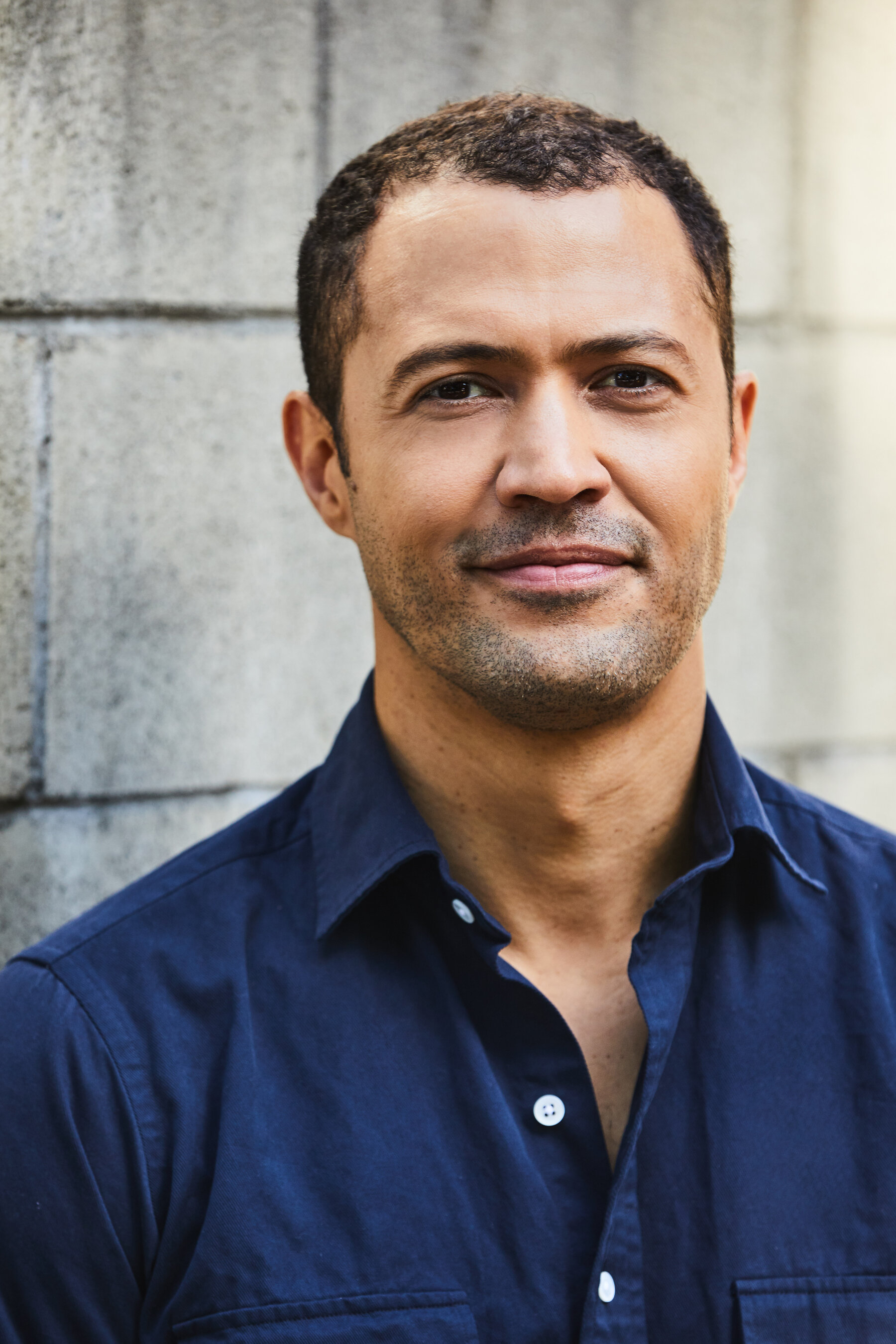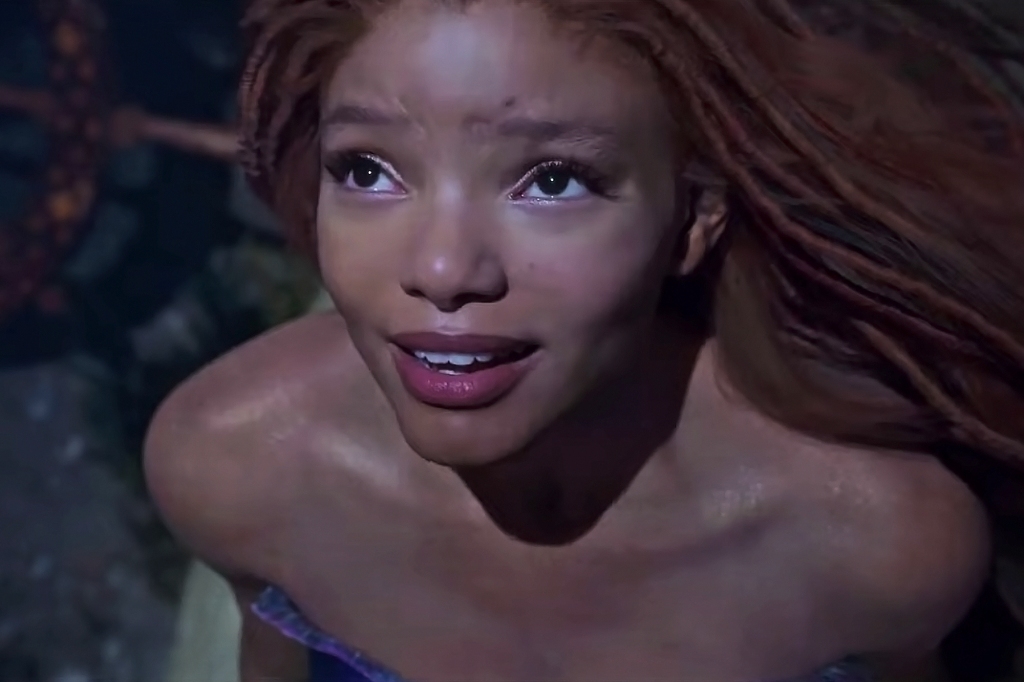
White-washing. I’m sure everyone has heard this word once or twice. Simply put, it’s a word used to describe when Hollywood casts White people or lighter people to play everyone, especially characters that were originally people of color. It has been seen as another term to describe “Blackface” in the modern era. White-washing has existed since the beginning of cinema, even when Black people were “allowed” to act in Hollywood. In fact, Whitewashing existed frequently up until as recently as 2017. It was around this time, in 2017, when Hollywood started to realize that casting White actors to play various ethnicities doesn’t always pay pockets in a modern society (Ghost in the Shell, 2017), even if the actor is well known and loved. They even recognized that it could be a career-killer for movie studios and actors alike.
After complaints about the Oscars’ selection of nominees appearing as “White” as possible, the Oscars began to set new diversity standards of eligibility for Movie Academy Awards in 2020. The rules were as follows:
- At least one actor from an underrepresented racial or ethnic group must be cast in a significant role.
- The story must center on women, L.G.T.B.Q. people, a racial or ethnic group or the disabled.
- At least 30 percent of the cast must be actors from at least two of those four underrepresented categories.
This caused Hollywood to go through a frenzy of hiring people of color anywhere they could. One way they have implemented this change is by casting Black people to play characters that were originally White, either by suddenly presenting them as Black…or actually calling them “White” (Hamilton-style) despite their race, with the audience having to suspend a bit of reality. This has been called in recent years “Black-washing”.
Just like with White-washing, Black-washing has also had its share of controversy. Some people find it to be hypocritical that “Black-washing” is allowed culturally when White-washing often gets met with disdain and backlash. Others don’t like “Black-washing” because it makes everything feel less authentic or unrecognizable as the cast doesn’t match the character in the source or most familiar material.
On the other hand, many like this type of casting choice because they feel it finally gives Black people and other people of color more representation. Some have even argued that Black-washing as an ideology doesn’t exist and that casting black people in these types of roles is simply another form of reparations for the mistreatment and erasure of Black people from media during the Golden Age Of Hollywood and during the days of the Hay’s Code (a time when Hollywood restricted what could be seen in cinema).
What I aim to do is give a nuanced perspective about “Black-washing”. Regardless of whether I think the theory holds any merit, as a Black person myself, I want to discuss the good that could come with this idea or concept, the bad that could come with this idea or concept, and the ugly that can often surround this idea or concept. Let’s break it all down.

The Good: More Opportunities For Black People
We are beginning to see a rise in Black characters in every source of media. According to Diversity Inc, roles for Black actors in a variety of tv series have increased post pandemic in which 65.8% of TV series featured a Black actor pre-pandemic and 70.5% featured at least one Black person post-pandemic. Roles for Black actors in films particularly have increased overall from 56.1% to 58.7%.
What this means is that Black-washing gives Black people an opportunity to be even more represented. That is a major feat, believe it or not. I actually remember a time when I went to Backstage.com to find auditions and many of the auditions would say “White-preferred”. As someone who used to be an aspiring actor, it was discouraging to say the least. This was in the early 2010s, not too long ago.
Make no mistake. Almost every lead character is still White, but at least more of them are starting to be people of color. I no longer feel like I would automatically be rejected from an opportunity just because of the color of my skin. I feel like I can finally be recognized for my talent, the talents I’ve had since high school, if I choose acting as a career choice again.
In a sense, this makes Black-washing different from White-washing. White people have never actually been barred from playing any roles in cinema. They have had plenty of opportunities; doors have been open to them from around the world and the doors still are open. Therefore, the effects of White-washing are actually a lot more harmful to Black people than Black-washing is to White people. Black-washing doesn’t bar White people from getting opportunities. Rather, it “evens” the playing field. Don’t misunderstand, I do see a lot of pitfalls that can come from “Black-washing” (which I will get into later in this article), but some of the arguments that many people make against “Black-washing” are usually based on misconceptions, bias, or racial prejudice.
Here is a common argument for example:
“Black people only make up 19% of the population in America. White people are the majority so why should Black people get an increase in roles?”
There are two problems with this statement. One problem is that there is a sense of American-centrism, basically Americans acting as if the entire world demographic begins and ends with America. In the entire world, there are more people of color then White people across continents. To be frank, many actors hired in Hollywood are not exactly from the USA. Many of them are from other countries. So this argument that having more Black people in Hollywood is somehow inaccurate or inauthentic is strange.
Second, these kinds of arguments seem to assume that White people will not relate to characters that are of a different race, so by making more characters of color it will somehow push White people away from watching movies. However, people of color have had to relate to characters of various backgrounds for decades, due to the dominance of White actors in media, and are constantly told that it shouldn’t matter what color they are. So shouldn’t the same apply to White people? Furthermore, why is it that viewers must relate to what they see personally? Isn’t it great to learn about something new and imagine what that would be like? I don’t relate to Harry Potter as a wizard, but I like learning and imagining what it would be like to have wizarding powers. Why doesn’t this logic apply to movies featuring Black culture?
To add, many of the characters that are accused of being “Black-washed” in a movie or a show are often played by mixed or biracial people. This makes the outrage a little more complex. We often have a tendency to see every mixed person that has a drop of Black as ONLY Black. I don’t think this is fair, especially if the actor in question is mixed with White ancestry and understands White culture. If they can act as Black characters, why shouldn’t someone of mixed ancestry be able to act as a White character? Sure, we can talk about how often times the mixed person doesn’t, in any way, resemble the character they are meant to portray. I think in some ways this is a valid criticism. But are you really mad just because they don’t look as you envisioned the part, or are you mad just because the person cast has a little bit of Black in them?
Here is another common argument against Black-washing:
“It is culturally inauthentic to have Black mermaids, elves, fairies, Black aristocracy, etc. These things are based in White culture.”
To counter this, Folklore and other tales have existed all over the world. Stories surrounding fantasy-like creatures didn’t start with the European diaspora. Furthermore, Black people have existed in all classes of European society due to colonialism. For example, many were upset that a Black man was cast to play Porthos in BBC’s The Musketeers. But did anyone know that the original writer of The Three Musketeers novel, Alexander Dumas, was of Black heritage himself, as well as a General in Napoleon’s army? I’m sure he wouldn’t have minded such a casting choice.
Finally, here is another common argument against Black-washing:
“It is unfair because the actor is being given a role just for the sake of diversity or “woke points”, not because they actually can do the job.”
I can understand this frustration. Even as Black people, we don’t just want to be chosen because we’re Black, becoming the “token” actor. We want our talents to be respected. However, it is a broad assumption to assume that every Black person that was chosen for these roles were simply chosen because they are Black.
Furthermore, various people of a variety of racial backgrounds, especially White people, were and still are simply preferred because of their White features, not their talents, compared to talents across other racial backgrounds. Therefore, this is not exclusively a Black-washing issue. If anything, White-washing occurred as a result of this “White” preference in Hollywood; Black-washing is simply another way of giving Black people the same treatment Hollywood has been giving White people for many years.
On the other hand, whether Black-washing exists or not, Black-washing as a strategy for diversity does have some major issues that I think needs to be discussed.
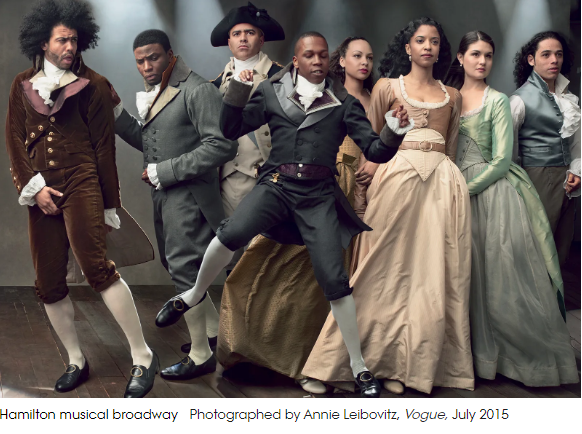
The Bad: Race-baiting, Whiteface, and Blackface
Blackface is when a White person puts on dark make-up to mock Black people, particularly for comedic purposes. This form of entertainment has been popular for many years. White-washing was often compared to Blackface because many times Hollywood would cast White or lighter actors to play Black people or other people of color, which to many felt disrespectful and conflicted with the experiences of people of color.
So what about “Black-washing”? We can see it as synonymous with Whiteface. Whiteface is a type of performance in which a person wears theatrical makeup in order to make themselves look like a White person. While it doesn’t have the same racist history as Blackface (nor does it have the same level of power or influence over how White people are seen overall), it is meant to represent a caricature of Whiteness and White people’s way of being. Whenever I watch movies that have a Black-washed cast, I can’t help but feel like the Black actors are playing a caricature of White people. There are certain mannerisms and ways of being that sometimes seem more in line with the way White people navigate society and respond to it. Although skin color doesn’t necessarily come with a set of personality traits, there are certain cultural differences between those across the Afro-diaspora and those within the Euro-diaspora, and that makes “Black-washing” so obvious to those who are viewing it.
Another part of the issue comes with the demand for the Black actors to live up to the expectations of the public’s perception of Whiteness. When a Black person acts as a character that was once White, many people expect the Black actor to capture the White character from head to toe, and so Black actors are often forced to portray themselves EXACTLY as the White character would even without the nuance of the Black experience. They have to speak as a White person would (this is not necessarily about articulation but rather for environmental responses), behave as White people would in certain situations, and often times the nuances of being Black within the story is not mentioned because technically they are playing a White person. It’s as if they live in a post-racist world where they are celebrated. In theory, this is great news and not all stories featuring Black people should be about “the Black experience”. Some people may even argue that’s the point of acting; to challenge yourself to behave as someone else.
But it doesn’t come without feeling that this new-found celebration of Blackness in Hollywood is less about colorblindness and more about Black people playing the roles White people are comfortable with. It creates a Hollywood form of cultural assimilation. For example, when we think of a Black princess, what exactly comes to mind? To the eyes of Hollywood, a movie about princesses should include a person acting, dressing, and adorning their hair as a European-inspired princess would because that is what Hollywood’s perception of a princess is: White and/or European.
I wouldn’t see a handful of Black girls in a lead role in cinema until my teens and early 20s. To make a comparison of the two movies I saw as a teen and young adult, one was Akeelah And The Bee (2006); the other was Annie (2014). Akeelah and the Bee was a story about a young girl who discovers she has a knack for spelling. She beats the odds of her underprivileged background to compete in the Scripps National Spelling Bee. In Annie, the movie follows the story of its predecessors where an orphan girl gets lucky enough to be chosen to live with the wealthy Daddy Warbucks, winning the hearts of many. Both actresses did a great job as far as acting goes, and both movies were mildly entertaining for me. When I watched Annie I admit I was excited to see a Black girl on screen as the lead (which I hadn’t seen since Roger’s and Hammerstein’s Cinderella). However, while watching Annie I couldn’t help but compare it to the original movie adaptation, Annie (1982), and all of the other Annie versions before it. While I understand it was meant to be a modern Annie, the only thing this movie had to offer was a “Black face”.
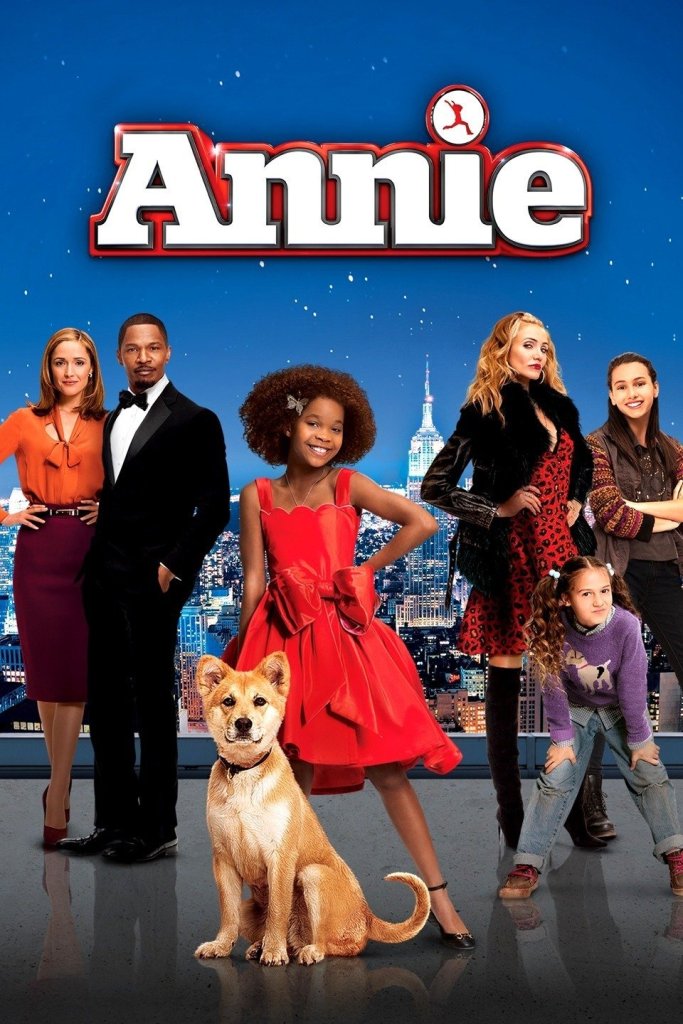
I already had an Annie movie version that I had grown to love long before this new adaptation and I became more critical of the newer movie as a result.
Whereas with Akeelah And The Bee, there was nothing compared to it. It was a one-of-a kind movie and, more importantly, it was an original Black story. You could feel the authenticity based on how it tied in Black culture in such a nuanced way and, yet, gave Akeelah her own personality and interests as an individual. People could watch it and enjoy it for what it was without making a comparison to anything else. Whereas with Annie (2014), if felt as if the Black actors were telling the story of a White girl who happens to have a Black face.

I also wonder: What more does Black-washing offer to Black audiences outside of the skin color of the actors? What more does it showcase to audiences outside of our community about Black people? In the end, most people are going to end up sticking to the more popular “White” versions while the “Black” version of the movie will be wiped from memory as the “knock-off”. Even as I enjoyed “Black-washed” movies like Roger’s and Hammerstein’s Cinderella (1997) or The Wiz (1978), let’s be honest here, these movies are mostly remembered by the Black audience that tuned in to watch in their respective time periods during eras where Black people were a lot less visible than today in movies.
To make multibillion dollar industries and bring in the big box office money, which would help continue Black Hollywood, we have to have something to offer others besides a Black face. Contrary to popular belief, we do not have to do it by imitating White people. Most people in the modern world are looking for new and original story-telling; with an interest in diversity, why are we not taking advantage of this to hop on new ideas and introduce our culture to the world in a fresh, new way?
To add, while “Black-washing” makes some of us feel seen in the moment, will it have the same long-lasting cultural impact, especially in regards to how we see ourselves?

Of course, we can forgive Hollywood executives when they cast Black people as fictional characters, right? These type of characters are usually imagined and so changing their skin color is a matter of taking creative liberties to be more inclusive. This motive is not something I would scorn and sometimes the intentions are good.
However, Black-washing gets murkier when we start to see White historical figures being Black-washed as well. I’m going to examine a good example of this sort of Black-washing: the stage production Hamilton (2015). The Hamilton cast is filled with extremely talented Black actors that capture the characters in quite an entertaining and charming way. I admit that I enjoyed watching it on stage and the talent was inspirational to say the least. To be honest, I even have forgotten that the characters they were portraying were White historical figures.
And that is sort of the problem. These White people, while they shaped the USA in many ways, were also slave owners and they could care less about Black people in their lifetime. So while the cast does a celebratory job of playing these roles, they still are playing White slave owners and colonists. Putting a Black face on these kinds of figures makes us sympathize with them more, I suppose. Yet, it makes us ignore what the actual person did because we see a Black face. We begin to fictionalize the real person because the stage production presented them as Black (even if what they did to Black people was questionable). So the question is, who gets to be celebrated in history, and should Black people be celebrated only when they are acting as White people, especially White people that participated in our oppression?
Understandably, I do believe that there has been a good reason historically for Black-washing. After all, as mentioned before, Black people were excluded from Hollywood after years of racism, and so we would often create movies or spaces that were made to mimic that of White entertainment just to be seen or represented. This was probably the only way Black people could gain visibility back in the past.
However, we are living in the 21st century. I think it is time we progressed past the need for Black-washing. We are one of the most visible minorities on-screen to date. Why do we still hold on to this old idea that the only way to have Black representation is by casting ourselves as White?
In my honest opinion, while I’m always happy to see Black people like myself on screen, I think Black-washing is lazy. It is a lazy way to give people “diversity” without actually giving them a unique story to call their own. There is a perception in Hollywood that Black people cannot carry a movie by themselves without the help of White people. There is also the perception that people won’t go see Black-led movies unless the story is already familiar (or in other words Eurocentric). Whiteness is often treated as the “default” and therefore more acceptable and digestible.
Black Panther (2018) was one of the movies to challenge these ideas. Black Panther, while known by most fans of the Marvel comics, was not as well-known among casual movie goers. In this movie, we see an African king of Wakanda and a true Black superhero who protects his own people, without the need of White intervention or European involvement. In this sense, the movie adaptation introduced an all-new story because it was the first adaptation of its kind. This made a bigger difference in the legacy of Black entertainment when we compare it to the White “knock-offs” that Black-washing had to offer. To add, what we also see from Black Panther is culture. Black culture.
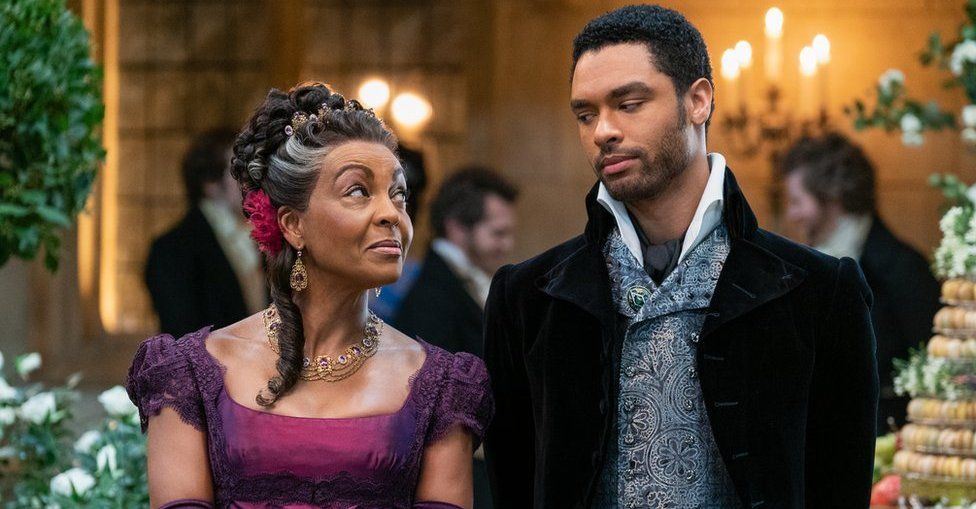
The Ugly: The Absence Of Black Culture
There are different ways to Black-wash. Black-washing can come in the form of a Black reimagination of an established property. What I do like about some movies with this approach is that it gives an opportunity to tell a similar story but with a unique “Black” point-of-view, inculcating the rich culture, music, and fashion that comes from the Black community. Take Disney’s The Princess And The Frog (2009), for example. While it can be seen as a “Black-washed” version of its predecessor (a fairy tale of European origin), it has its own way of telling the story that makes it feel unique from the batch of fairy tale movies. It also caters to the sentiments and experiences of Black people. Just for understanding, this is not to say the movie is perfect (there are various flaws with the movie, starting with the creative decision to showcase the Black princess as a frog for most of the movie). However, you can tell that the creators took an interest in Black culture and wanted to inculcate some of our rich heritage into the movie. Unlike Hamilton, this movie celebrates Blackness rather than Whiteness, even if inspired from a European tale. I feel the same way with The Wiz (1978), the Black adaptation of The Wizard Of Oz, where Oz is designed to resemble that of Black urban neighborhoods, music, and culture. In a sense, we as Black people can both relate to it and see ourselves being represented more authentically.
Unfortunately, many movies today are missing the nuances of our culture in them because they are simply casting Black people to play White people. Movies that Black-wash without the nuances of our culture often feel hollow. They give me nothing to look back and be proud of except the fact that the person playing in the role is Black. Trust me, there will be plenty more feats where the “first Black actor” is playing the “first Black something”. This will get old really soon.
Furthermore, when are we going to start embracing stories from Black communities and culture? I want more movies like The Black Panther (2018). I want to see our culture celebrated, our kings or queens honored, our “fairy-tales” or folk tales visible. When are we going to get an Anansi The Spider movie? What about Mufaro’s Beautiful Daughters? There’s so many more Black stories that we need only Google search to find them.
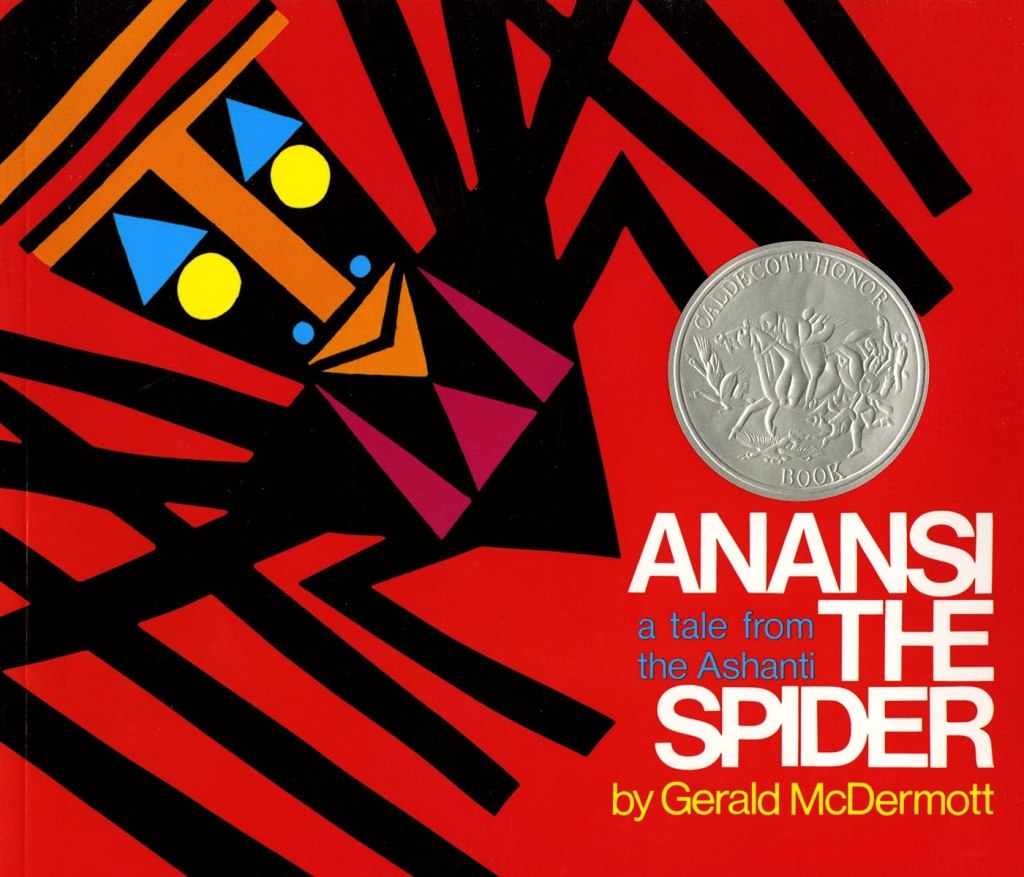
I think about the show Bridgerton (2020-Present). It is a great show with a very diverse cast of characters. However, while the show is progressive in its approach, having as many diverse faces as possible, the styles and attitudes are meant to mimic that of the Regency era in White European society. While this story is based on historical facts (albeit controversially), and it is being produced through a Black-owned entertainment company (even if the writers of the show are mostly White), that doesn’t take away the fact that the inspiration of this show and most shows and movies are always focused on Europe. Why so Eurocentric? Many of these actors will be praised only when they are acting in roles that reflect European culture or aristocracy while movies that reflect other cultures are often criticized as being somehow “stereotypical” or less “universal” to audiences.
Ultimately, it feels as if we are more eager to praise this form of cultural assimilation rather than embrace cultural diversity and liberation. In a story like Bridgerton, we can pretend that people of color were equal to that of White people in those societies. We can ignore the racist history behind people of color at court, how they had to cut off family ties to be seen as more “White” in society, and dismiss their culture to assimilate to a European way of life. We can more easily see Black people in power when the backdrop is European because Whiteness and European values represent power in our minds. We can even ignore the atrocities that occur even within the story of Bridgerton towards people of color, such as when Daphne (a White woman) decides to force Simon, a Black man, to have intercourse with her to get what she wants and gets away with it, especially in the book, which the series adaptation is based on. Amongst the beautiful scenery and European-style costumes, we can pretend that this is what true diversity looks like.
Hollywood champions diversity when it comes to casting, but many of the White producers and directors there don’t actually have enough interest in diversity to delve into a culture that is not their own. No, they should not be able to use the excuse that they don’t know enough about other cultures because the opportunity is there to hire advisors or even have some of the actors give advice. Yet, Black-washing gives them the easiest way out because they believe that Black people are desperate and accepting of their scraps. The truth is that many of the major producers in Hollywood are not interested in expanding their interest. Black-washing is simply another way for them to brush the issue under the rug, with very little effort to include diversity, especially when many of them are reluctant to recruit creative thinkers from even a small number of people from underrepresented groups behind the scenes.
Despite a major increase of Black people in media, what has been staggering is the amount of Black showrunners. Black screenwriters and directors are also very few. In 2017 alone, only 5.1% of showrunners were reported to be Black. Many of the Black people that are on-set sometimes don’t even honestly get a say in how the characters are created, not even when it comes to the creation of Black people in fiction.
As Cord Jefferson, writer of The Good Place (2016-2020), put it: “Something that happens a lot when it comes to diversity in Hollywood ― and everywhere else ― is that people will just populate the room with people of color or queer people or women but not really respect those people’s voices or pay attention to what they’re saying. It feels like you’re diversity decoration a little bit, as opposed to a valuable member of the team.”
Executives mistakenly believe that simply having a “racial-neutral” cast or staff is the best way to add more diversity. As we can see, that only addresses the problem of diversity superficially. When I see a movie that Black-washes in this sort of “color-blind” way, I become very skeptical of the intentions. I do recognize that some producers or casting directors simply want to show talent without discrimination, but this method makes it seem as if they do not actually care who they cast in the role. This is why we get diverse-looking characters, but an absence of diverse story-telling.
Abbott Elementary, a TV series that focuses on a predominately Black school and its teachers, manages to highlight Black characters in a way Black people, especially educators, can relate to because of its authenticity. To date, Abbott Elementary has the best comedy ratings on ABC since Modern Family, even in a time when streaming services dominate traditional cable TV. What makes the show fantastic is that it is not “color-blind”. It is an original story with the intent of showcasing what it is like to work with Black children in a low-income area. Despite the fact that the show does not focus on White people (even with a handful of White people in the show), it still manages to relate to people of various backgrounds. The show didn’t have to be a Black version of an established “White” series nor did the show have to focus on White culture’s influence on Black people.
Instead, what makes this show appealing is that it is an authentic Black story, and because the cast is predominately Black, we don’t have to rely on “token” Black voices to get a full picture of what being Black is like. Through the characters of this show, we can see a variety of attitudes and feelings that can relate to anyone who is a teacher or has ever taught in a low-income school. The show also doesn’t have to shy away from Black culture in order to avoid stereotyping. Instead, it approaches stereotypes in a nuanced way, allowing for Black audiences to recognize themselves while relating to a variety of characters who approach these topics differently. While the show draws inspiration from the other mocumentary-style comedies before it, viewers can feel the intention was to tell a Black story. The best part is it is written by a Black person (Quinta Brunson).

This is what I’m hoping will happen in the future when companies are dealing with Black movies and shows. I don’t think there is anything wrong with being inspired from European stories nor do I think it is wrong to cast more people of color. However, I think we need to do better when it comes to recognizing Black people outside of the face alone, taking on the opportunity to also show respect for where we come from and exploring that experience to make more authentic Black content.
As far as acting as historical figures, we don’t have to be honored in White history in order to prove that we are a part of history. Believe it or not, we Black people have our own history outside of the White European diaspora. We have had kingdoms. We have had Gods. We have had heroes and villains. But how will other generations know or understand this if all they have to see is a White interpretation of Blackness or culturally assimilated Blackness? Black-washing in Hollywood might give us temporary excitement and representation, but will it give us something to look back on that will make us proud to be who we are for a lifetime? I honestly do not think so.
I want to know what you all think. Do you think “Black-washing” is beneficial or is the concept regressive? Do you think it actually exists or is it just all in our heads?
Sincerely,
Guest Writer VenusLove


